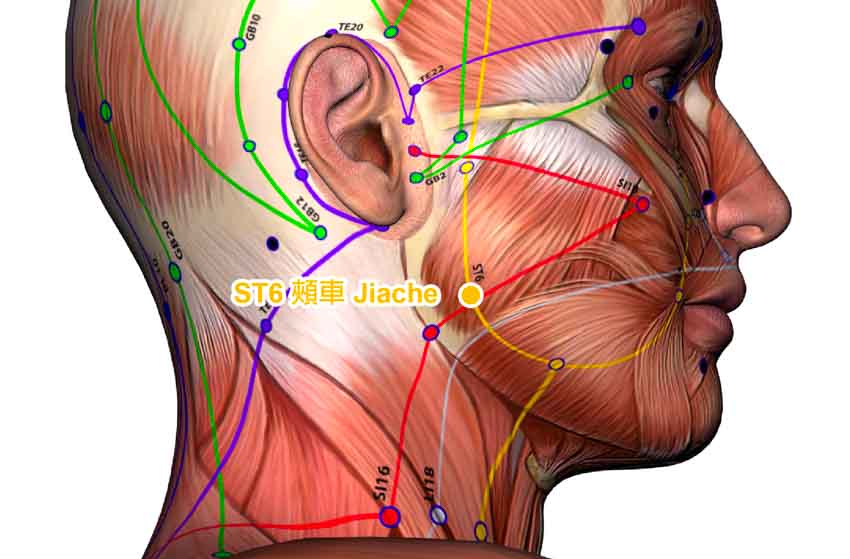
Acupuncture alleviates pain, according to modern scientific research. Several recent findings underscore the efficaciousness of acupuncture. Harvard Medical School, Georgetown University, University of Arizona College of Medicine investigators conclude that acupuncture is effective for the alleviation of low back pain, based on an evidence-based systematic meta-analysis. The research team adds that their conclusion is consistent with US CDC Guidelines and the American College of Physicians (ACP), which conclude that acupuncture is a “first-line” medical procedure for the treatment of low back pain. [1]
The guidelines and funding for research are partially driven by the need to find non-pharmacologic alternatives and supplements in order to address the opioid epidemic. Learn more about back pain relief in the acupuncture continuing education course entitled Low Back Pain. In another investigation, Florida, Minnesota, and Arizona Mayo Clinic researchers conclude that acupuncture is safe and effective for the alleviation of cancer pain.The researchers note, “The evidence suggests that acupuncture is effective and safe in managing cancer pain in palliative settings.” [2]
Acupuncture produces analgesic effects and clinical reviews demonstrate that acupuncture also provides assistance with tissue repair. Two clinical case histories published by Dr. Hawks demonstrate that acupuncture is “highly effective, with rapid results for both acute and chronic Achilles tendinopathy and was performed easily in an austere environment.” Dr. Hawks works at the Mike O'Callaghan Military Medical Center at Nellis Air Force Base (Nevada) and acupuncture treatments were administered to personnel while deployed overseas. [3]
Harvard Medical School, Georgetown University, University of Arizona, Creighton University, and Louisiana State University researchers conclude that acupuncture reduces the frequency, intensity, and duration of migraine attacks. [4] The study notes that patients receiving acupuncture treatments are also less prone to anxiety attacks and depression.
Harvard Medical School, Xidian University, and Capital Medical University researchers conclude that acupuncture reduces migraine attacks and they determined a way to predict acupuncture treatment successes using MRIs. [5] The researchers discovered that a patient’s brain structure is predictive of the success rate achieved by a specific acupuncture protocol for the reduction or elimination of migraines. Using MRIs and machine learning, specific patterns in brain grey matter prior to treatment were correlated with improved response rates.
Patients received 3 acupuncture treatments per week for 4 weeks. Each acupuncture treatment lasted for a total of 30 minutes. The acupuncture points applied to all patients were the following:
- GV20 (Baihui)
- GV24 (Shenting)
- GB13 (Benshen)
- GB8 (Shuaigu)
- GB20 (Fengchi)
A Tufts University research team notes that fMRIs “demonstrate that acupuncture has regionally specific, quantifiable effects on relevant structures and restoration of the balance in the connectivity of the human brain implicated in descending pain modulation, and altered pain-related attention and memory.” The researchers conclude that acupuncture is a “safe and reasonable referral option” for patients with knee osteoarthritis and chronic lower back pain” and note that scientific data demonstrates that patients suffering from fibromyalgia experience relief from acupuncture. [6] This is consequential in that modern research demonstrates that acupuncture alleviates both nociceptive and non-nociceptive pain.
Memorial Sloan Kettering Cancer Center (New York) researchers conclude that the analgesic effects of acupuncture are superior to sham controls and acupuncture’s pain relief persists over time for patients with musculoskeletal pain, headaches, shoulder pain, and arthritis. The research team concludes that acupuncture is an effective treatment modality for patients with chronic pain and a referral to an acupuncturist is a reasonable treatment option. [7]
Stanford University researchers conclude that acupuncture safe and cost-effective for alleviating pain in children. The researchers note that acupuncture is “useful in chronic pain conditions” adding that it may be clinically valuable in an integrative medical setting. The research documents acupuncture’s ability to stimulate natural pain killers within the body (dynorphins and endorphins) along with several other important biological responses involved in pain management. The researchers cited multiple findings of acupuncture successfully relieving headaches, migraines, abdominal pain, fibromyalgia, pelvic pain, Complex Regional Pain Syndrome (CRPS), acute post-operative pain, and post-operative delirium. [8]
References:
1. Urits, Ivan, Jeffrey Kway Wang, Kristina Yancey, Mohammad Mousa, Jai Won Jung, Amnon A. Berger, Islam Mohammad Shehata, Amir Elhassan, Alan D. Kaye, and Omar Viswanath. "Acupuncture for the Management of Low Back Pain." Current Pain and Headache Reports 25, no. 1 (2021): 1-10.
2. Yang, Juan, Dietlind L. Wahner-Roedler, Xuan Zhou, Lesley A. Johnson, Alex Do, Deirdre R. Pachman, Tony Y. Chon, Manisha Salinas, Denise Millstine, and Brent A. Bauer. "Acupuncture for palliative cancer pain management: systematic review." BMJ Supportive & Palliative Care.
Author Affiliations:
Mayo Clinic: Jacksonville, Florida; Rochester, Minnesota; Scottsdale, Arizona. School of Traditional Chinese Medicine, Jinan University (Guangzhou, China).
3. Hawks, Matthew Kendall. "Successful Treatment of Achilles Tendinopathy with Electroacupuncture: Two Cases." Medical acupuncture 29, no. 3 (2017): 163-165.
4. Urits, Ivan, Megha Patel, Mary Elizabeth Putz, Nikolas R. Monteferrante, Diep Nguyen, Daniel An, Elyse M. Cornett, Jamal Hasoon, Alan D. Kaye, and Omar Viswanath. "Acupuncture and Its Role in the Treatment of Migraine Headaches." Neurology and Therapy (2020): 1-20.
5. Yang, X.J., Liu, L., Xu, Z.L., Zhang, Y.J., Liu, D.P., Fishers, M., Zhang, L., Sun, J.B., Liu, P., Zeng, X. and Wang, L.P., 2020. Baseline Brain Gray Matter Volume as a Predictor of Acupuncture Outcome in Treating Migraine. Frontiers in Neurology, 11, p.111.
6. Zhang, YuJuan, and Chenchen Wang. "Acupuncture and Chronic Musculoskeletal Pain." Current Rheumatology Reports 22, no. 11 (2020): 1-11. Tufts University School of Medicine (Boston, Massachusetts).
7. Vickers, Andrew J., Emily A. Vertosick, George Lewith, Hugh MacPherson, Nadine E. Foster, Karen J. Sherman, Dominik Irnich, Claudia M. Witt, and Klaus Linde. "Acupuncture for chronic pain: update of an individual patient data meta-analysis." The Journal of Pain (2017).
8. Golianu, Brenda, Ann Ming Yeh, and Meredith Brooks. "Acupuncture for Pediatric Pain." Children 1, no. 2 (2014): 134-148.


